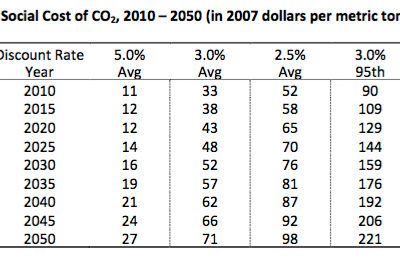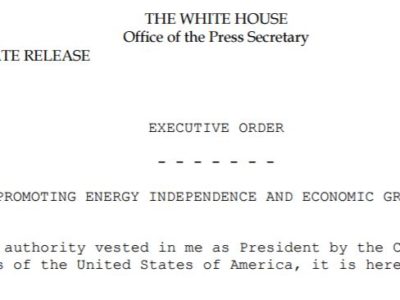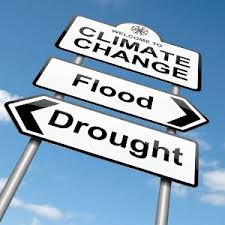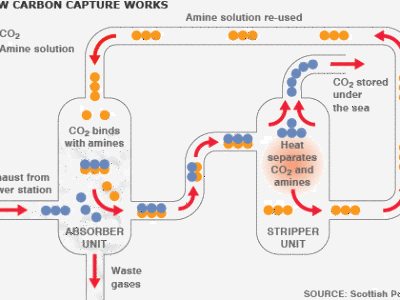social cost of carbon
The Social Cost of Carbon – Revisited
The case for using global rather than simply U.S. impacts.
The estimated harm done by a single ton of carbon in the atmosphere – the “social cost of carbon” — is a key factor in setting climate policy. The Trump Administration is trying to get its estimate as close to zero as possible. A key part of this effort is to exclude from consideration the …
Continue reading “The Social Cost of Carbon – Revisited”
CONTINUE READINGWhither the Social Cost of Carbon?
Trump rescinded the Obama Administration’s estimate. Now what?
Republicans vehemently attacked the Obama Administration’s estimate of the social cost of carbon. Trump withdrew that estimate and directed individual federal agencies to do their own estimates. The agencies will now be faced with a number of problems, and it’s not clear that they are well positioned to deal with them. They might prefer to …
Continue reading “Whither the Social Cost of Carbon?”
CONTINUE READINGTrump’s Executive Order: Bad Policy and More Uncertainty
President Trump’s Executive Order on climate policy is an invitation to bad policymaking and legal uncertainty. The big-ticket item targeted by the Order, of course, is the Obama Administration’s Clean Power Plan and related rules on carbon dioxide emissions from power plants. The EO has limited immediate legal impact: none of the major rules can …
Continue reading “Trump’s Executive Order: Bad Policy and More Uncertainty”
CONTINUE READINGTrump’s Frontal Assault on Climate Policy
The true victims aren’t you and me. It’s our descendants who will pay the price, long after Trump is gone.
We live in a time of contrasts. Yesterday, scientists reported more evidence that climate change will intensify heat waves and droughts in temperate zones through changes in the jet stream. Today, however, the Trump Administration initiated the process of eliminating federal climate policies. In a pointed insult to EPA staff who have worked long and …
Continue reading “Trump’s Frontal Assault on Climate Policy”
CONTINUE READINGLegal Mandates to Consider the Social Cost of Climate Change
Considering climate impacts isn’t just a good idea. It’s the law.
Many people seem to think that considering climate impacts and the social cost of carbon was just a policy decision by the Obama Administration, which Trump if he doesn’t buy the reality of climate change. But it’s not that easy. But there are strong arguments that considering climate change is mandatory. First, the whole idea of considering …
Continue reading “Legal Mandates to Consider the Social Cost of Climate Change”
CONTINUE READINGA Small-Government Approach to Pricing Carbon
We can impose a price on carbon without a tax or emissions trading. Here’s how.
Cap and dividend is a politically appealing idea; put a price on carbon, then refund the money to consumers in equal shares. But conservatives and libertarians object to this idea on two grounds. First, cap-and-trade systems are complex and require a lot of regulatory oversight. Second, if the government collects the money, despite its current …
Continue reading “A Small-Government Approach to Pricing Carbon”
CONTINUE READINGThe Shadow Price of Carbon
Merging Cost-Benefit Analysis and Feasibility Analysis
The U.S. government has devoted a lot of time and effort to estimating the social cost of carbon. This is basically a standard exercise in cost-benefit analysis, following a familiar three-step process: 1. Impacts. Figure out the physical impacts of the emissions. This involves setting up some emissions scenarios and then running computer simulations to …
Continue reading “The Shadow Price of Carbon”
CONTINUE READINGA Case of Reverse Causation?
Tomorrow’s Emission Determine Today’s Social Cost of Carbon
Here’s the weird thing: the social cost of carbon today, depends significantly on the year-by-year emissions of carbon in the future, which we obviously don’t know. (Because it depends on our own future actions!) It takes some explanation to show why that’s true and how it matters. If you know a bit about climate policy, you know …
Continue reading “A Case of Reverse Causation?”
CONTINUE READINGCapturing Carbon
A recent CRS report provides a wealth of information about carbon capture. You can learn a lot about the various technologies and how close or far they are from possible adoption. But for most of us, the technical details matter less than the answers to some key questions: Is carbon capture technically feasible? Can it …
Continue reading “Capturing Carbon”
CONTINUE READINGThe House Takes Aim at EPA Regulation of Power Plant Pollution
Last week, the House passed HR 1582 on a 232-181 vote. The law is designed to restrict EPA regulation of power plants, but the House also adopted an amendment that takes a swipe at environmental economists. HR 1582 is mercifully brief and to the point. When EPA proposes a rule that would impose over $1 billion …
Continue reading “The House Takes Aim at EPA Regulation of Power Plant Pollution”
CONTINUE READING










